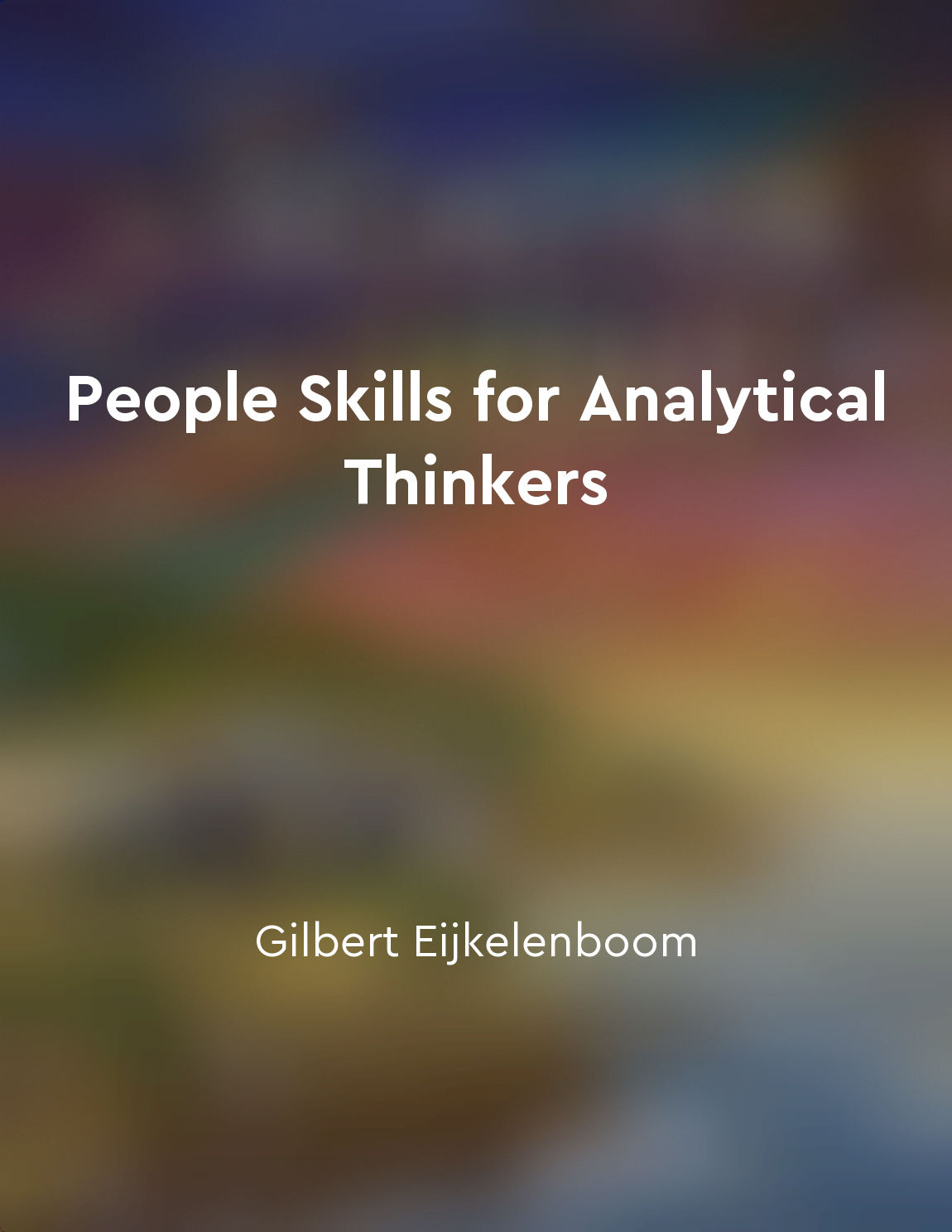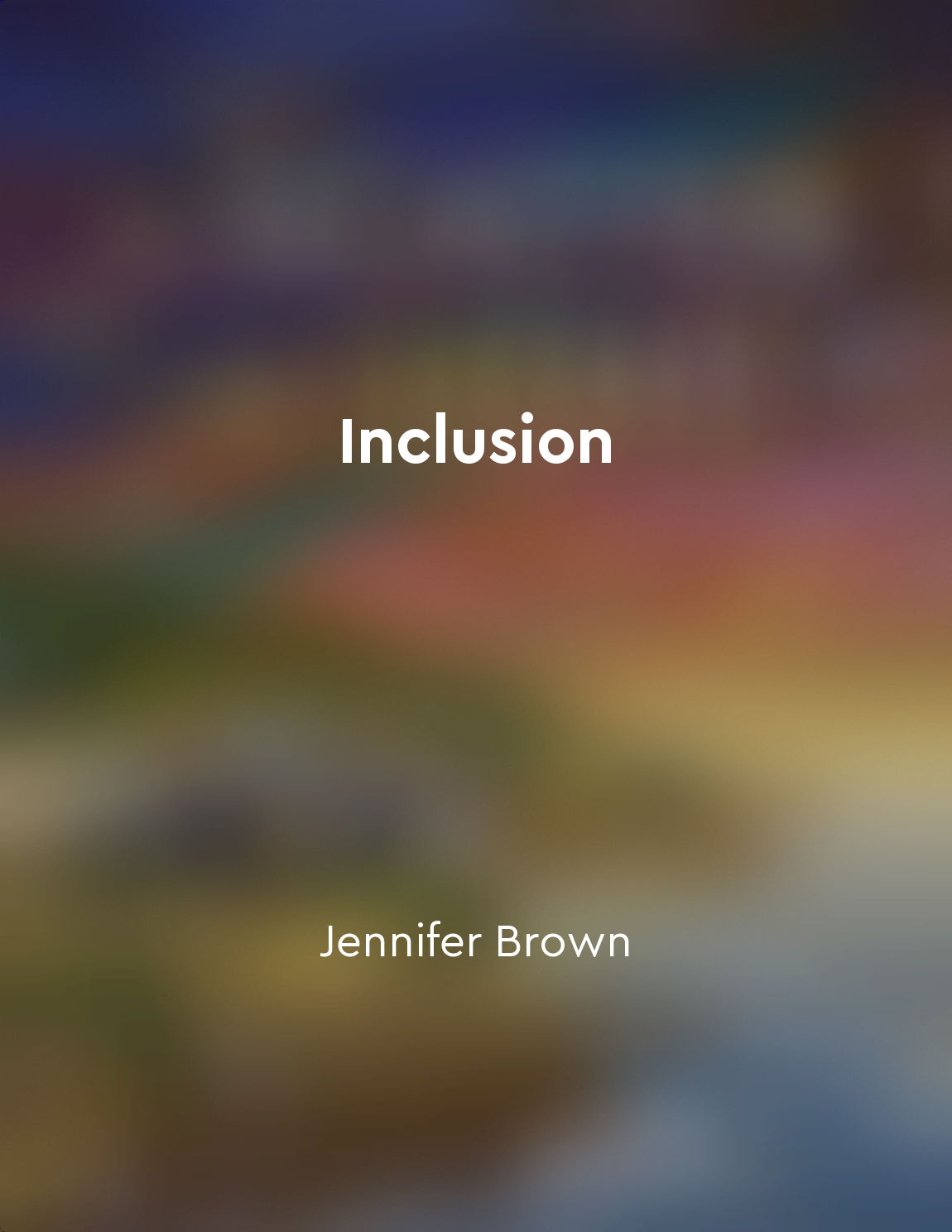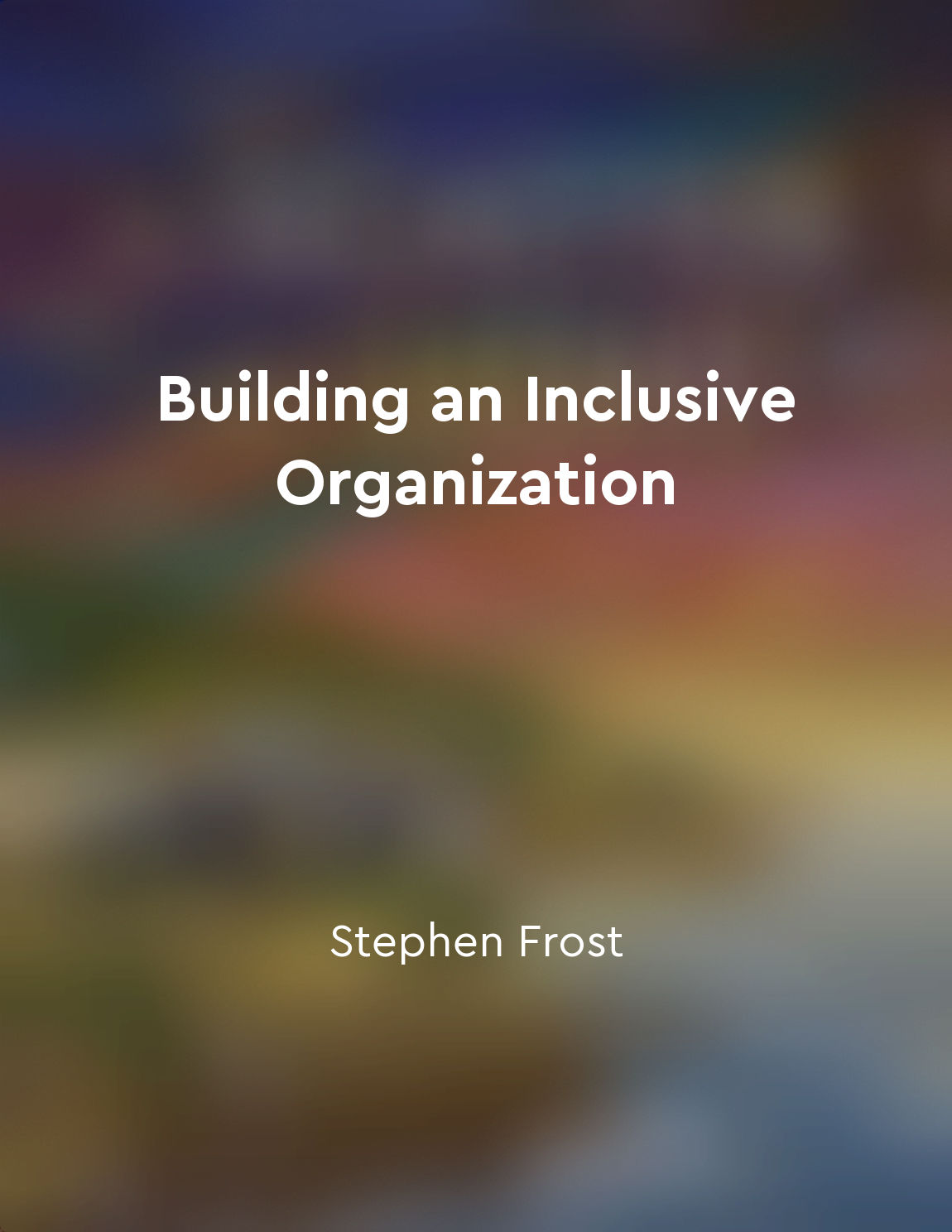Recognize and address privilege from "summary" of Building an Inclusive Organization by Stephen Frost,Raafi-Karim Alidina
The concept of recognizing and addressing privilege is crucial in creating an inclusive organization. Privilege refers to the unearned advantages that some individuals possess based on their social identity, such as race, gender, or socio-economic status. It is important for individuals to acknowledge their privilege and understand how it can impact their interactions with others. Recognizing privilege involves reflecting on one's own advantages and being mindful of how they may influence one's worldview and behavior. This self-awareness is essential for fostering empathy and understanding towards those who may not share the same privileges. It also involves acknowledging the systemic inequalities that perpetuate privilege and working towards dismantling these structures. Addressing privilege requires taking action to level the playing field and create a more equitable environment. This can involve amplifying the voices of marginalized groups, advocating for policies that promote diversity and inclusion, and actively challenging discriminatory practices. It also requires individuals to be willing to confront their own biases and actively seek to unlearn harmful beliefs. In the context of organizational culture, recognizing and addressing privilege can lead to a more inclusive workplace where all employees feel valued and respected. It can also help to foster innovation and creativity by bringing diverse perspectives to the table. By actively engaging with the concept of privilege, organizations can create a more equitable and just environment for all employees.- Recognizing and addressing privilege is a continuous process that requires commitment and effort from individuals and organizations. By being willing to confront uncomfortable truths and take proactive steps towards change, we can create a more inclusive society where everyone has an equal opportunity to thrive.
Similar Posts
Employment protection legislation seeks to safeguard workers from unfair treatment
Employment protection legislation is designed to provide a safety net for workers, ensuring that they are protected from any fo...
Protecting civil liberties is essential for democracy
The bedrock of any democracy lies in the protection of civil liberties. Without the safeguarding of these fundamental rights an...
Never stop striving for excellence
In our pursuit of success, we must always remember that excellence is not a destination, but a continuous journey. It is about ...
Through mirrors, we seek validation
In mirrors, we find ourselves reflected back to us, our image staring back with unblinking eyes. We gaze into these reflective ...

Affirming one's identity is empowering
When we affirm our identity, we are acknowledging who we are and embracing our unique characteristics. By doing so, we are taki...

Recognize nonverbal cues
Nonverbal cues are an essential aspect of communication that often goes unnoticed by analytical thinkers. These cues include fa...
Always act with honesty and transparency
The importance of honesty and transparency in business cannot be overstated. These qualities are essential for building trust a...

Provide inclusive leadership
Inclusive leadership is about creating an environment where everyone feels a sense of belonging and is valued for their unique ...


